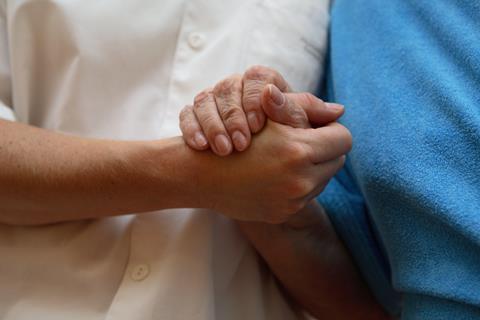Iain Moppett discusses the importance of apologising for medical mistakes made in the health service

“I just wanted them to say sorry.”
The words of a patient? Of a bereaved family? Of a cleaner, junior doctor or nurse? A consultant or a chief executive? The list of people involved in healthcare who would like an apology is probably as long as the list of people who interact with it.
Yet time and time again that apology is missing, not heard or less than sincere.
The only thing that I can guarantee is that everybody, from the secretary of state through to the part-time band 2, will make a mistake. Most of us more than one.
Whatever else happens, we will all make mistakes. The NHS, the education system and trusts are doing our staff a disservice by not teaching them, by not preparing them, for what mistakes mean to their patients and to themselves
Despite the protestations of newspapers, broadcasters and social media, the vast majority of people in healthcare come to work to improve the lives of patients and their families.
True, they have plenty of other motivations mixed in, but what is it that means that decent, caring people find it so hard to say sorry? Is there something special about the culture of the health service that makes heartfelt apology so difficult? I’m not sure there is anything unique, but the high-stakes make our failure to apologise much more significant.
I am not going to presume to prescribe a panacea – but maybe present a few challenges to NHS senior management, to trusts and employers, the universities, and colleges and societies. And maybe something for the media too.
Training to deal with errors
Education, role-modelling, assessment and feedback are classic tools for training and improvement in professional skills. Yet these are largely lacking when it comes to saying sorry.
How much investment in time and energy do we put into training and educating people into how to deal with mistakes? Isn’t it time we invested in learning how to say sorry?
Which medical school is going to be brave and invite a harmed patient to deliver the very first lecture of the course? Which trust is going to role-play a conversation with a bereaved family in its selection process for the next CEO? Which NHS-wide body is going to start their next missive with an apology to the trusts and their staff for wasting their time with the last request for pointless data?
It is a cliché that 90 per cent of drivers believe themselves to be above average. I suspect that most people in healthcare believe that they go beyond what is necessary in apologising to patients, families and colleagues. But how do we know?
When was the last time a senior leader asked their underling they unjustly berated how well they apologised? We are well used to the concept of peer-review and audit of practice in the clinical and professional arena – time to build this into normal practice perhaps? Many universities and trusts now provide excellent simulation scenarios for clinical and communication skills.
Which medical school is going to invite a harmed patient to deliver the very first lecture of the course? Which trust is going to role-play a conversation with a bereaved family in its selection process for the next CEO?
I would posit that the average consultant or hospital manager will learn far more of benefit to the NHS and patients from an hour learning how to deal with error than yet another fire lecture or life support course. Fire and resuscitation are far better managed by the experts anyway.
Going further, should the new Medical Licensing Exam, postgraduate medical diplomas, and regulatory revalidation require some evidence of real (not tick-box) ability to deal with the aftermath of error and poor care?
I recently asked a cohort of final-year medical students how many of them had observed discussions with “angry” relatives. Almost none had – yet we expect them to react perfectly when they first hit this situation.
Perhaps more worryingly, in a recent exam of pre-clinical medical students when asked what the appropriate responses to a clinical error were, only 1 out of 17 suggested apologising. We can’t blame cynical doctors and pressure of healthcare for that – they haven’t been exposed to the wards yet! Are we selecting the right people in the first place?
The myth of the perfect nurse, the perfect doctor, the perfect manager persists. Go to a conference, read the HSJ supplements and (almost universally) the conversation is about success not failure.
Admitting failure
Part of saying sorry to someone else, involves saying sorry to ourselves. To admit our failings sincerely to someone else we have to first admit these imperfections to ourselves.
We are not that perfect professional. This is hard. This involves self-doubt and self-retribution.
This has real consequences. Admitting failure – mine or someone else’s – with real conviction takes an emotional toll. A few years ago, apologising to an extremely angry patient for a (relatively trivial) mistake by my trainee left me in tears at the nurses’ station.
Would better preparation, better support, better role-models, have prevented that? I don’t know.
Part of saying sorry to someone else, involves saying sorry to ourselves
Taking a systems-level approach (and knowing that journalists read the HSJ too) just a small request to the media. Next time you report that a hospital or individual has apologised, try not to sensationalise it with “blunder” and “fatal mistake”. If you really want to help staff apologise properly perhaps you could make it easier not harder.
Whatever else happens, we will all make mistakes. The NHS, the education system and trusts are doing our staff a disservice by not teaching them, by not preparing them, for what mistakes mean to their patients and to themselves.
Above all, we fail our patients for a second time. We can do better.




























3 Readers' comments